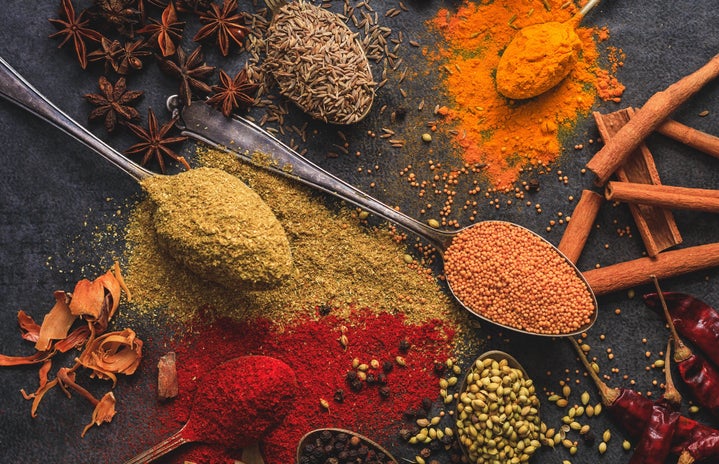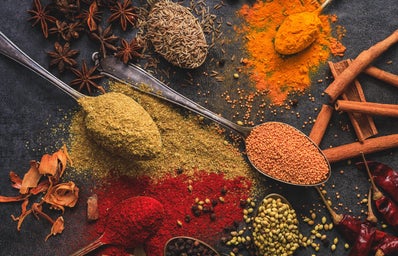Food is one of the most important parts of people’s lives, but it is not just about sustenance or nourishment. All around the world, food plays an integral role in different cultures’ traditions and celebrations. Learning a new recipe that has been passed down through generations, preparing a meal in preparation for a holiday, or simply gathering around a table to share a meal with family or friends are all common experiences, but the impact it has on each individual is unique. The experiences created by food are universal; they transcend cultural barriers.
Different cultures have different staples when it comes to food depending on what they had access to in the past when these recipes were being created. Over time, cultural recipes have been shaped and modified to fit the ever-changing world we live in, yet the message passed down with every dish has always remained the same—resilience. Years of experience shaped how we prepare these meals, and each time a person makes one of these dishes it’s a homage to their ancestors: A reminder that they are not forgotten and that their culture survived the tragedies of the past.
Across the globe, food plays a vital role in how people celebrate holidays. How a dish is prepared, presented, and eaten becomes tradition, whether cultural or familial. These things can vary based on cultures and families, but the meaning behind them does not. Those foods create experience and meaning that lasts through generations, whether it’s something as simple as having cake on a birthday or something a bit more complicated like a Thanksgiving dinner. These traditions look different in every home, and when shared with people from different cultures, it bridges the gap and connects them. This bond is created between people when they share a meal as they enjoy a moment of peace where they can just talk and eat.
I asked some Old Dominion University students if there were any cultural dishes that bore significance to them:
Kylie Adams: “Golumpkis and Pierogies: I love these two foods because they make me feel closer to my family (Polish), and I love to pay homage to it. We have it every Christmas in memory of all our passed loved ones from our Polish side!”
Faith Grant: “I love oxtail and spice bun. My father immigrated from Jamaica when he was young and while I feel that most of that culture has been erased, I think Jamaican food always reminds me a little of where he came from. Also, it’s good as f***.”
Anonymous: “Not a specific dish, but preparing the Dia de los Muertos altar with my family was always significant. Especially the years after my father passed, knowing that I was honoring him and my ancestors made preparing the foods that much more meaningful.”
I’m Egyptian-American and Egyptian food has always been my connection to my culture and heritage no matter how far away I am. Some of my favorite memories are coming home after a long day at school and smelling my mom’s cooking; her food always smells like home. In Egypt, there is a saying that roughly translates to “sharing bread and salt.” It refers to the bond created between people when they share a meal, the trust that forms as they share these few precious moments. This phrase especially resonates with me when I share Egyptian food with friends for the first time as I share a part of me they do not normally get to see.
Food is the one thing people have in common no matter where they are in the world, yet they find ways to make it unique, creative, and personalized. Cultural dishes travel across time and through generations to create rich memories and experiences. This is heightened when shared with the people we love; these memories are irreplaceable.


